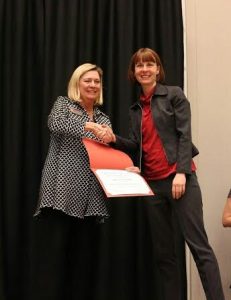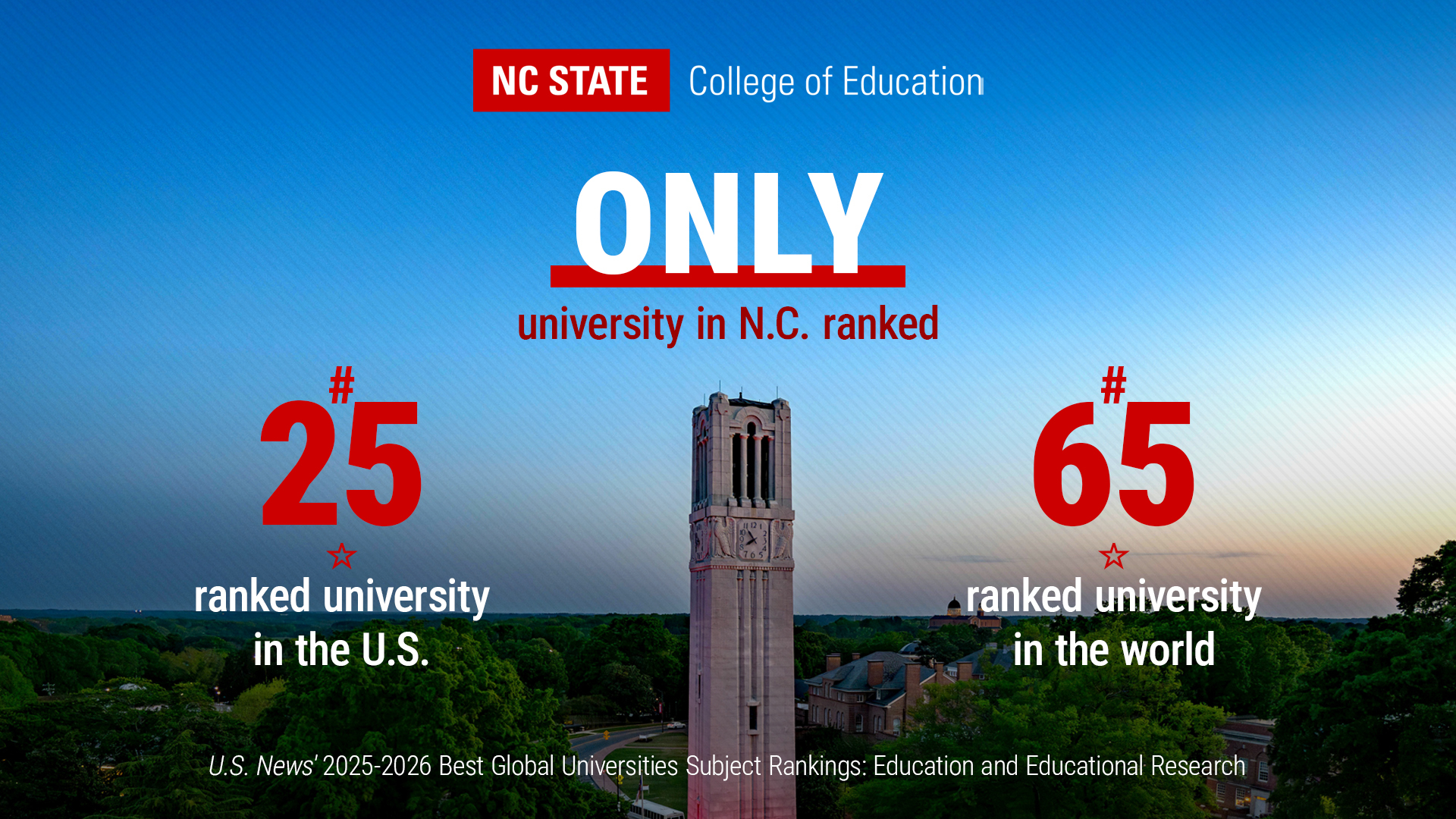Exploring Science Phenomena: Excellence in Laboratory Teaching

Shana McAlexander is a doctoral student in science education within the Science, Technology, Engineering and Mathematics Education (STEM Ed) Department who recently received an Excellence in Laboratory Teaching Award from the Graduate Student Association. We asked her to share her experiences as a student and educator at NC State.
What does it mean to you to receive the Award for Excellence in Laboratory Teaching?
One of the conversations I had after accepting the award was about the feedback that we, as instructors, get from students. It is incredible how a couple of negative comments, on evaluations for example, can resonate so much louder than all the positive ones. However, getting this award spoke the loudest, leaving me feeling proud of my growth and the chance to learn from and mentor others.
Tell us about your experience teaching in a laboratory setting. How does it differ from teaching in a classroom? How do students learn differently in a lab setting?
As a teaching assistant in the Biology Department, I had the chance to test out my teaching methods on a weekly basis. For the most part, these students were pursuing careers in science or medicine, and I was inspired by their motivation and maturity—it was such pleasure to teach in this role.
I love organizing and facilitating laboratory experiences for students. Lab provides a great opportunity for inquiry where students collaboratively explore science phenomena. Labs also reinforce disciplinary content by allowing students to observe specimens and systems, model abstract concepts, engineer solutions and test research questions.
What did you learn this year that may change your teaching style next semester?

I’ve found that one of the best constructivist strategies for developing students in the science classroom is the use of argumentation. Being part of a science community requires the use of science language. Argumentation requires students to work collaboratively and to think critically and involves the presentation of a position and supporting evidence. I’ve tried to implement these concepts in the biology laboratory and will definitely continue to use argumentation in my classes going forward.
Why did you choose to pursue a doctoral degree in science education at NC State?
My ultimate career goal is to inspire people in their own pursuit of science. I believe that the pursuit of science knowledge and understanding will benefit individuals through improved mental processing, problem solving, and career opportunities and benefit society through innovation and advancement. Many of my peers in the program are focused on K-12 learning, but I’ve directed my efforts to post-secondary and workforce science education.
How will your experiences at NC State influence you professionally moving forward?
As I continue my studies in the Ph.D. program, I am tasked with honing my direction of scholarship. I am particularly interested in workforce development in the life sciences and biotechnology industry. I find daily opportunities to apply the pedagogical methods and philosophies I’ve learned to an adult workforce, in my current capacity as an instructional designer for Novozymes, an international biotechnology company. Wherever my career takes me, I am grateful for the support and development provided by the people within the STEM Ed community.
- Categories:


